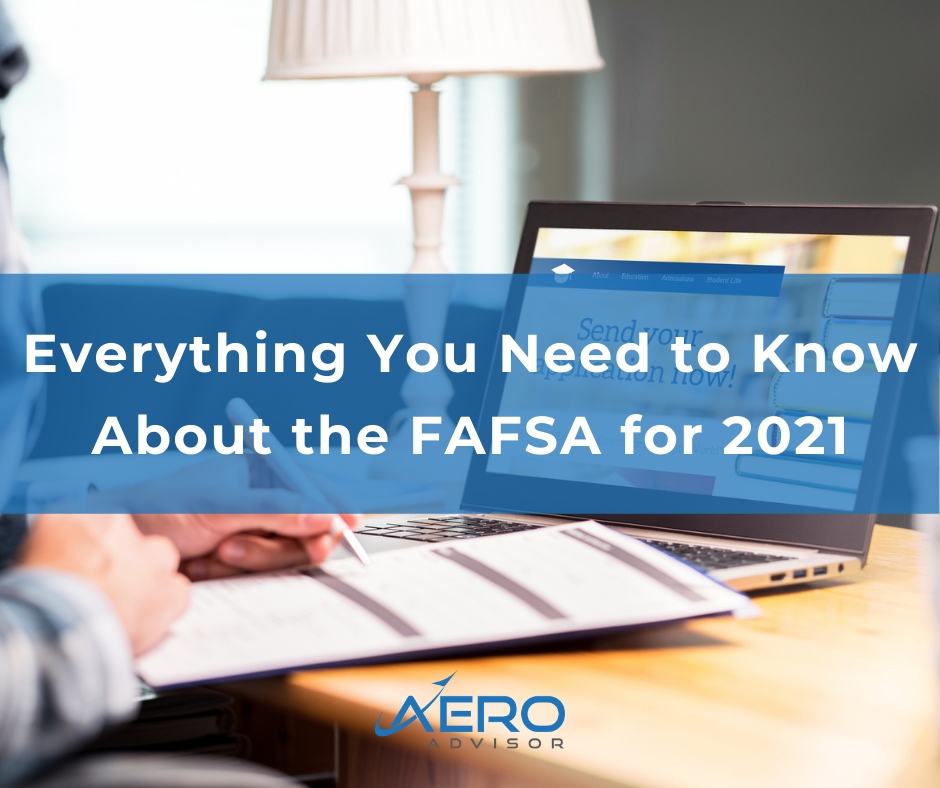One of the most important pieces of the college financing puzzle is the Free Application for Federal Student Aid (FAFSA). Without the FAFSA, a college student is unlikely to be able to apply for or receive certain types of federal student aid, including federally subsidized student loans. What should parents and students know about the FAFSA process for 2021?
What is the FAFSA?
The FAFSA is the first and arguably the most important step in the college financing process. It gives colleges and universities a picture of a student’s finances, allowing them to decide how much aid to extend to the student. The federal government also evaluates the FAFSA when deciding what types of Stafford or PLUS loans a student might qualify for.1
The FAFSA relies on the student’s (or their parents’) federal income tax information, along with self-disclosed assets, to calculate the expected family contribution (EFC). Subtracting the EFC from the cost of attendance at your student’s chosen college or university gives you an idea of how much aid your student may qualify for.
What Information Does the FAFSA Need?
Before you fill out the FAFSA, gather some information to have handy. This includes:
- Your driver’s license number
- Your prior year’s federal income tax return
- Statements of your assets, including money held in a 529 plan
- A list of the schools the student is interested in attending
By providing the contact information for these schools, the FAFSA results may be sent directly transmitted there, streamlining the aid award process.
When is the 2021 FAFSA Deadline?
The FAFSA has some fairly generous deadlines. For the 2020-21 academic year, the FAFSA was due by June 30, 2021.2 For the 2021-22 year, the FAFSA is due by June 30, 2022. But since the FAFSA dictates the amount of aid your student qualifies for, it’s generally a good idea to submit it as early as possible, as this provides you with more time to make a final enrollment decision.
What Happens if the FAFSA Doesn’t Reflect Your Current Situation?
Because the FAFSA relies on prior tax information, it’s not always an accurate reflection of your current circumstances. If you’ve lost income, gotten a divorce, had a medical emergency, had another child, or run into some major expenses, you may be able to appeal your aid decision or amend your FAFSA to more accurately reflect your current situation.
Important Disclosures:
Content in this material is for general information only and not intended to provide specific advice or recommendations for any individual.
This information is not intended to be a substitute for specific individualized tax or legal advice. We suggest that you discuss your specific situation with a qualified tax or legal advisor.
All information is believed to be from reliable sources; however LPL Financial makes no representation as to its completeness or accuracy.
1 https://studentaid.gov/h/apply-for-aid/fafsa
2 https://studentaid.gov/apply-for-aid/fafsa/fafsa-deadlines
LPL Tracking #1-05176094






